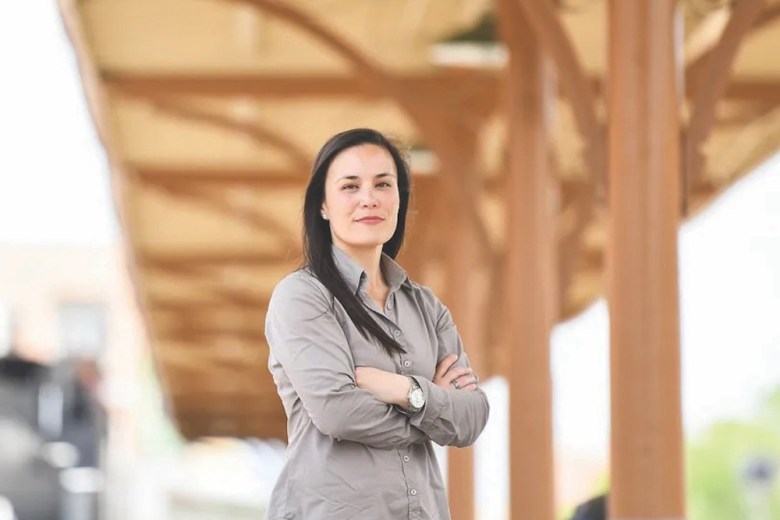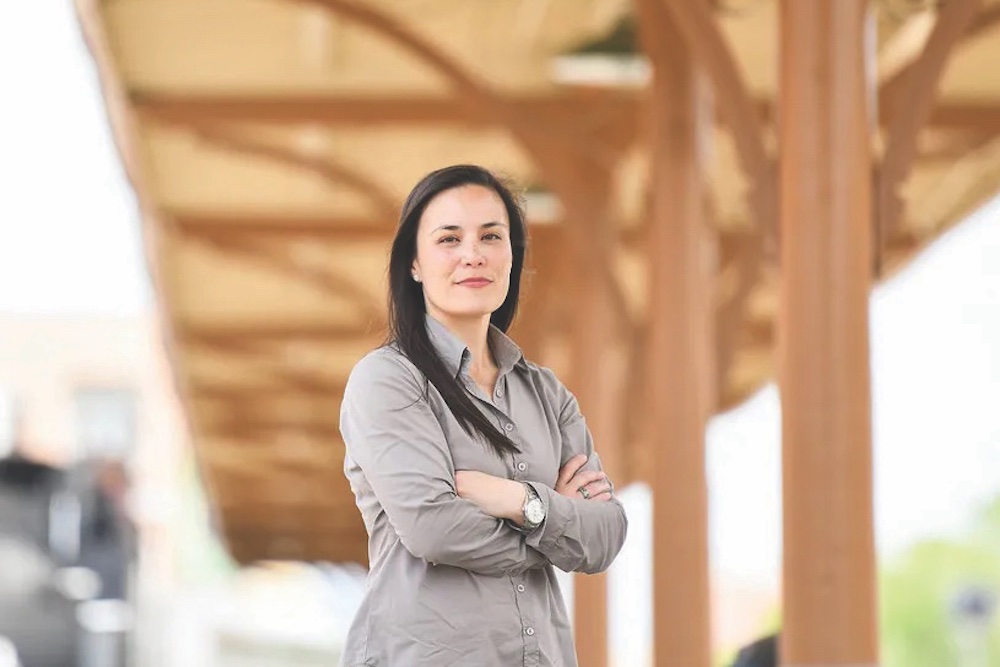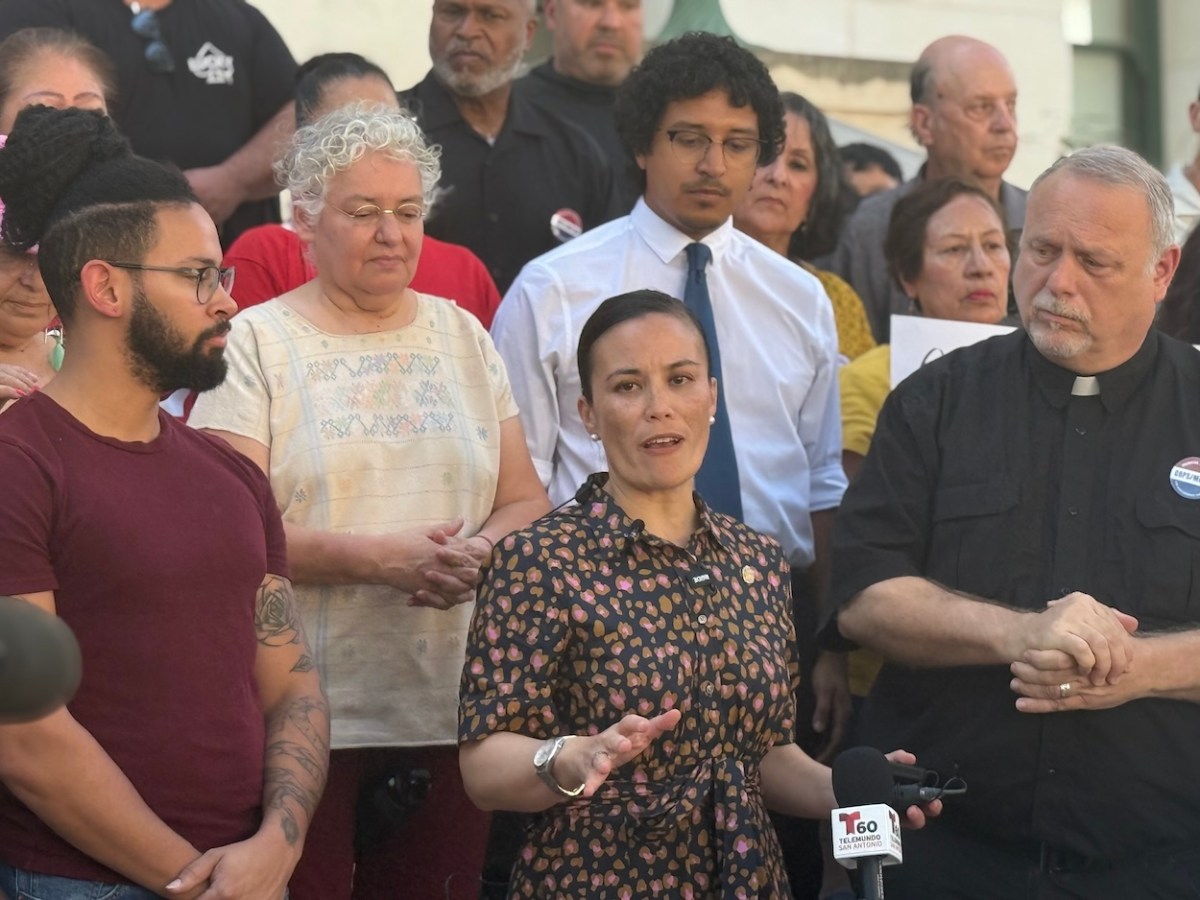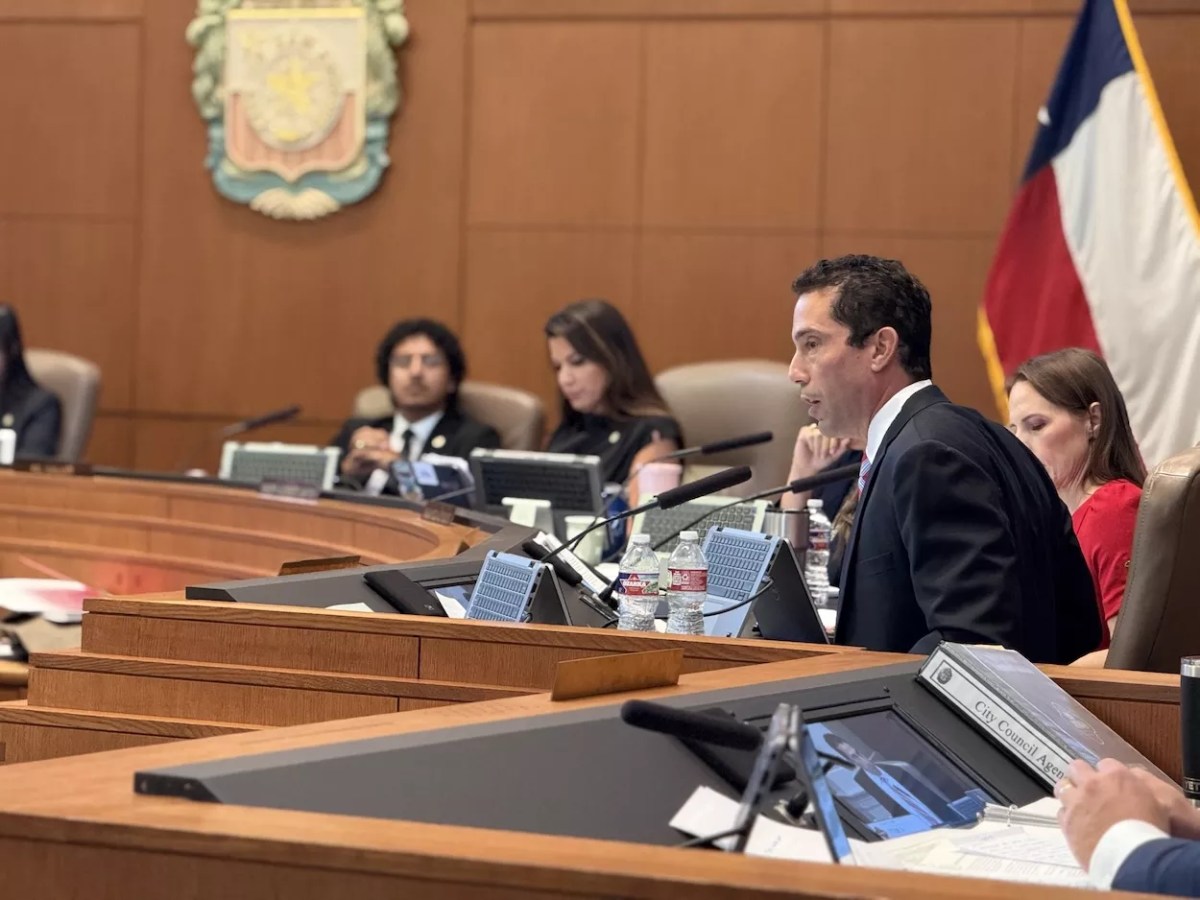 Mayor Gina Ortiz Jones argues the current process for putting proposals forward for a council vote is unfair to members who are newly elected. Credit: Courtesy Photo / Gina for Mayor
Mayor Gina Ortiz Jones argues the current process for putting proposals forward for a council vote is unfair to members who are newly elected. Credit: Courtesy Photo / Gina for Mayor
Don’t expect a letup in the tensions between Mayor Gina Ortiz Jones and some of her colleagues on City Council.
Earlier this month, Jones issued a memo that would throw out all Council Consideration Requests (CCRs) submitted before her tenure began in June. CCRs are the documents members of council must file before a proposal can receive full debate on the dais.
The mayor argues it’s unfair to require council members who weren’t yet elected when the body’s governance committee approved a CCR to come up to full speed on the proposal and make a well-reasoned vote on it.
However, political observers maintain Jones’ controversial policy change is less about looking after new council members than it is shoring up control.
“It’s about power,” longtime San Antonio political consultant Laura Barberena said.
Jones declined comment on this article and on criticism of how she’s handled the debate over changing the CCR process.
Last week, a bipartisan coalition of council members, including District 5’s Teri Castillo, District 7’s Marina Alderete Gavito, District 9’s Misty Spears and District 10’s Marc Whyte, filed a formal four-signature memo to hold a vote on Jones’ proposed CCR rule change by Sept. 18.
The formal memo, filed with the city clerk, came after Jones’ office on Sept. 9 issued a memo announcing that all CCRs filed before she took office in mid-June would be sent back to square one.
“For CCRs that include signatures from former Council members, the sponsor is asked to replace those with current Council members and to confirm in writing that the other Council members continue to support the CCR as written,” the memo states. “This way ahead best affords the newly elected Council members the opportunity to review and provide feedback on ideas that would directly impact their constituents.”
However, critics argue Jones’ proposal has several problems.
First and foremost, a majority of council already pushed back against Jones’ proposed CCR changes during a meeting in August. Following that contentious meeting, Jones backed down, stating in a press release that council would “revert to the process outlined” in the existing CCR ordinance. The mayor added that she would reevaluate the issue “after the new year.”
Traditionally, CCRs filed by council have carried over between mayoral administrations, according to Barberena — or that’s at least been the norm for the decade she’s done work related to City Hall.
“Yes, council members are their own persons as they come into the office, but you’re also building on the work that the person did before you, whether you share that ideology or not,” the consultant explained.
Barberena pointed to District 9, where termed-out progressive Councilman John Courge handed over the reins to Spears, a conservative who’s still working to get her predecessor’s proposals up for council discussion despite their differing ideologies.
The other issue with Jones’ proposal is that no new council members have backed her claim that the existing CCR system puts them in a difficult spot.
“Not one council member has ever said that,” Whyte told the Current. “We’re sort of proving that point by having Misty Spears on our memo.”
Although Spears is a first-term member of council, she signed onto the four-signature memo to allow CCRs filed by former members to move forward without input from new faces on the dais.
The last time council changed the way CCRs are brought up for public discussion happened during the tenure of Mayor Ron Nirenberg. Members of the body put if forward after some raised concerns he was quietly sidelining their proposals.
That approved ordinance amended the City Charter so that a full council vote is required to change the CCR process, Whyte told the Current.
“There’s a valid city ordinance, so it’s city law that sets out the process, and if you want to change it, you have to put it to a vote,” Whyte said. “[Jones] cannot modify the process unilaterally by a memo. If she wants to change the process, she needs to put it to a vote.”
San Antonio political consultant Kelton Morgan told the Current that Jones’ battle over the CCR process shows her inability to work with others on council and her staff’s lack of understanding of how local government works.
“In politics, there is always the possibility of a reset,” said Morgan, who also served as Nirenberg’s first-term chief of staff. “But, it’s going to take something — at least from my observation, an anathema to her DNA — and that is some humility, some apologizing and some taking time to sit down and try to forge actual relationships with members of council.”
The mayor also would be wise to bone up on San Antonio’s city charter to understand what powers she actually has under a council-manager form of government, Morgan added.
“The onus at this point to salvage anything is on the mayor and not anyone else,” he said.
Council will vote on whether to change the CCR process or keep it as-is during its Thursday, Sept. 18 meeting.
Subscribe to SA Current newsletters.
Follow us: Apple News | Google News | NewsBreak | Reddit | Instagram | Facebook | Twitter | Or sign up for our RSS Feed
Related Stories
The Spurs’ pro-Project Marvel rally featured sports star power, while COPS/Metro promised steadfast resistance.
The watchdog group will hold a public town hall Sunday at St. Margaret Mary Catholic Church to discuss the study.
Mayor Gina Ortiz Jones said she will call a public vote on the matter in May, although it’s unclear whether she has the authority to do so.
This article appears in Sep 3-17, 2025.



